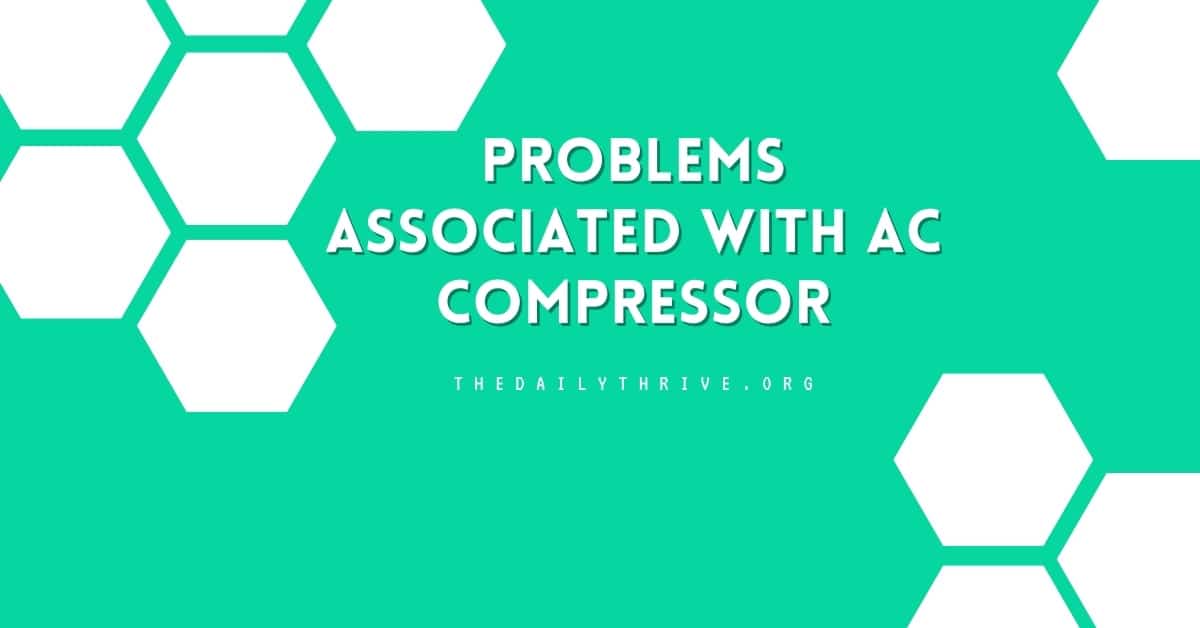The compressor, condenser, and evaporator are the three most essential components of an AC unit. If your AC is not working correctly, it might have to do with the compressor. In this post, we detail signs something is wrong with your compressor along with common problems that lead to damaged AC compressors.
How does AC Compressor Works?
To better understand the problem with your air conditioning unit, it’s essential to understand the role of an AC compressor. The compressor is typically located outside the house, along with the condenser. Working fluid that flows through your AC system is transferred to the compressor in the form of low-pressure gas.
An AC compressor is responsible for squeezing or compressing this fluid so that the molecules bundle up closer together. When molecules are pushed together, this increases their energy as well as temperature.
This hot and high-pressure gas is then sent to the condenser.
It is the job of the condenser to take this and turn it into a cool liquid. From here, the liquid is transferred to the evaporator, where it is changed into a low-pressure, cool gas.
The exact process happens the entire time your AC is ON until your home reaches its desired temperature.
The air conditioner compressor allows the heat to dissolve outside and evaporate completely after traveling through another set of coils. Without a properly working compressor, your home will never cool off.
Signs of a Bad AC Compressor
If there’s an issue with your AC compressor, you might experience one of the following signs.
The most common sign that your AC compressor is not working is your AC blowing out warm air.
To identify if your compressor is malfunctioning, first, try turning your thermostat down to a shallow temperature, then go outside and wait to see if the outside unit clicks on.
If you notice the AC condenser unit sounds weird, either your compressor has gone bad, or something else is wrong.
If the circuit breaker connected to your AC system keeps tripping, it could also be from a bad AC compressor.
The Most Common AC Compressor Issues
The AC compressor is a crucial part of your unit. Without it, your entire heating and cooling system will not work. However, since this component gets a lot of wear and tear, it can develop several issues over time.
Still, the average AC compressor lasts 12 to 15 years. So if a significant problem with your compressor arises, it likely has to do with an underlying problem.
Oil Leaks
The compressor can break down if exposed to oil from a leak somewhere else in the system. For example, oil has become lodged in the suction line, or the pump has failed.
Refrigerant Issues
Suppose liquid refrigerant does not vaporize all the way while in the evaporator. It will enter the compressor cylinder and cause negative pressure. Overuse of refrigerant and incorrect settings can cause this to occur.
Contamination of Compressor
Due to the heat and pressure found in this part of your AC unit, air, dirt particles, moisture, and acids can all build up in the compressor and cause system contamination.
Dirty Condenser Coils
Perhaps the problem is dirty condenser coils; these are the coils responsible for sucking up the air after the compressor has condensed them. When the condenser coils become clogged by a build-up of debris, a much smaller amount of airflow can cross into the condenser coils from the compressor.
So when one part of your AC begins to back up due to dirt and debris, the entire system can start to malfunction, incurring a domino of issues.
Overheated Compressor
The compressor can overheat if:
- The condenser is not cooling properly
- There is inadequate suction cooling
- If air can not get into the system
How Much Does It Cost To Replace Or Repair Your Compressor?
Depending on the problem and how quickly it is addressed, the cost to fix your unit may vary. In some cases, it makes more sense to replace your entire AC unit instead of replacing the broken compressor.
Tips for Homeowners
When an AC compressor fails, it’s important to know what caused it to fail. Suppose the technician cannot determine what caused the compressor to fail. There is a pretty good chance a replacement compressor would also fail.
So when you’re deciding on AC compressor replacement, you need to understand that enough time needs to be spent with the unit after it’s running again to find the problem that caused the compressor to fail in the 1st place.
This is something that have to be investigated. Not finding the cause generally gives you the opportunity to change a compressor again. It might be two weeks, and it might be next summer.
If you did not isolate the problem and correct it, you will get the opportunity to do it over. There are so many things that can cause a compressor failure that it would be hard to even mention them all.
You can prevent your compressor from experiencing issues by practicing good maintenance and having your unit routinely inspected by a professional HVAC technician.






